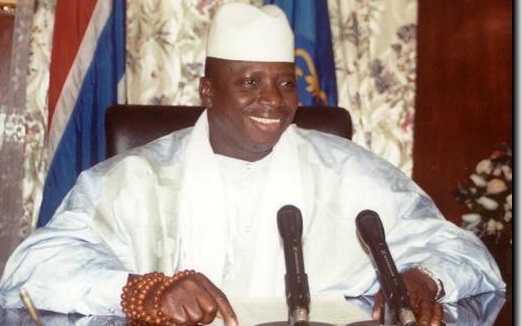
Accra, Ghana | AFP | A paramilitary unit controlled by former Gambian president Yahya Jammeh was accused Wednesday by rights groups of being behind the killings of more than 50 West African migrants in 2005.
Human Rights Watch and TRIAL International said they interviewed 30 former Gambian officials, including 11 officers, and a survivor of the round-up as part of a joint investigation.
The migrants — 44 Ghanaians and several Nigerians, Senegalese, as well as a Togolese — were arrested on a beach in Gambia while trying to reach Europe, suspected of being mercenaries wanting to overthrow Jammeh.
According to a joint statement by the NGOs, they were detained in the capital Banjul and handed over in groups to the “Junglers”, a notorious paramilitary unit, and executed.
“The West African migrants weren’t murdered by rogue elements, but by a paramilitary death squad taking orders from President Jammeh,” said Reed Brody, a legal advisor at Human Rights Watch.
“Jammeh’s subordinates then destroyed key evidence to prevent international investigators from learning the truth.”
A joint report by the Economic Community of West African States and the UN, which was not made public, concluded in 2009 that the killings and disappearances were carried out by rogue members within the Gambian security services, with no credible evidence to suggest they were acting on orders from superiors.
“The new evidence makes clear, however, that those responsible for the killings were the Junglers,” HRW and TRIAL said in their statement on Wednesday.
In the statement, Martin Kyere, the only known Ghanaian survivor, told how his group was tied up in the back of a pick-up truck.
“It was then that I thought, ‘We’re going to die,” he said.
But he managed to get free and escape into the forest, and later helped Ghanaian authorities identify many of the victims.
Jammeh, whose 22-year-rule was marked by numerous human rights violations, lost the presidential election in December 2016 to opposition leader Adama Barrow.
He fled the country the following month for Equatorial Guinea, where he finally conceded and handed over power.
 The Independent Uganda: You get the Truth we Pay the Price
The Independent Uganda: You get the Truth we Pay the Price





